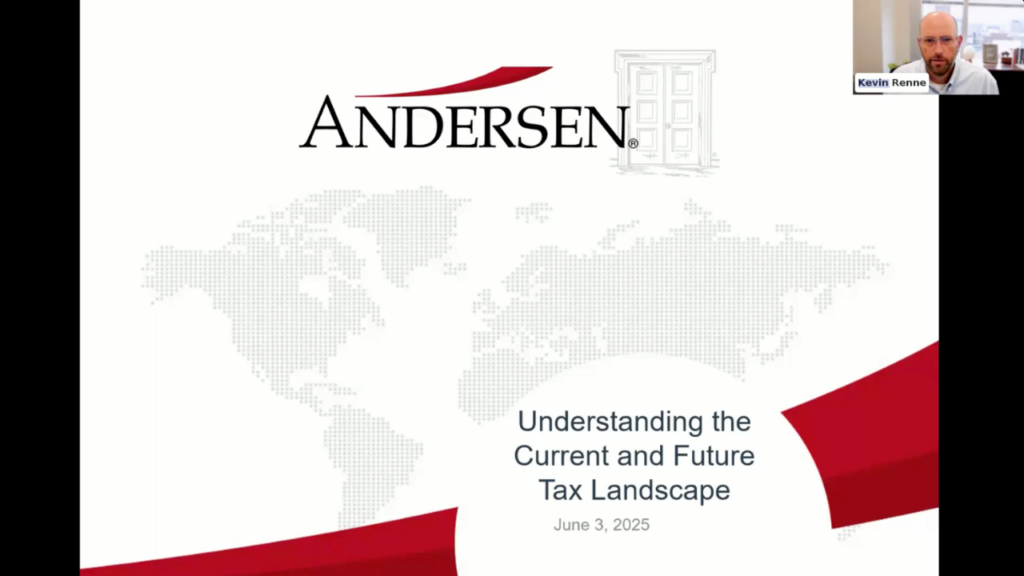Everyone should have an estate plan. Why? Because without such a plan, your state government will decide how your assets will be distributed after your passing and who is responsible for your affairs. If you’re like most individuals, you are not comfortable with the government making these decisions, which may mean that you have an estate plan that has been customized for your individual circumstances. However, even if you have an estate plan it is imperative to review it on a regular basis with your trusted advisors to make sure everything is still in place and in accordance with your wishes. After all, even if your estate plan perfectly matched your needs when it was created, things change over time. Here are 5 reasons why you should review your estate plan.
-
The Federal Estate Tax Exemption Will Sunset at the End of 2025
In 2024, if your estate exceeded $13.6 million per person, you would’ve been subjected to a federal estate tax of 40% on any amounts above $13.6 million, assuming you have not reduced your exclusion through your lifetime gifting. But starting January 1, 2026, the amount of that exemption will be reduced to approximately $7 million per person.
This exemption amount is based on everything you own at the time of death and may include the value of items you have not considered, such as life insurance owned directly (rather than through a trust or other entity you control). Anyone with an estate close to $13.6 million should meet with their wealth advisor and estate planning professional to verify that nothing is missed in calculating the value of their gross estate. In fact, anyone close to the 2026 reduced exemption should consider planning prior to this change.
-
Reformed Uniform Fiduciary Access to Digital Assets
You have probably heard of digital assets in some context. Most individuals think of the most well-known forms of digital assets, such as cryptocurrencies, but those are not the only digital assets we have. Our digital accounts, computers, and cell phones hold important data about ourselves and our assets, and many are not aware how important these are in the event of death or incapacity. Therefore, individuals should make sure access to digital assets are included as part of their estate plan and that the individuals who will be serving as fiduciaries (including executors and trustees) are able to get access to that information without the need for a court order, which can be costly and time consuming.
-
Do You Understand What Your Documents Say?
Many individuals get their documents executed, place them in a safe space, and never think of them again. Do you know or remember who your personal representative, agent, trustee, and/or guardian will be of your minor children will be? If your documents were created as much as 10 years ago, your sibling may have not been the best choice to raise your minor children at the time, so your parents were chosen; is that still appropriate? Are your assets passing the way you would like them to? Have you decided that there are specific items—perhaps acquired since your documents were created—that you would like to go to certain individuals? Are your beneficiaries on retirement accounts and insurance contracts current? Because there are so many iterations of changes that could have occurred over time, verbal promises made, and other shifting circumstances and priorities, it is important to remind yourself of what your documents say and to make sure they still reflect your current wishes and needs.
-
Have You Had Any Life Changes?
Death, divorce, marriage, children, and incapacity are just some of the life events that should trigger an estate plan review and likely an update. For example, supposed you are divorced, but your ex-husband was given your power of attorney. Or, even more common, suppose an ex-spouse is still the beneficiary on a life insurance policy or a retirement account. Most individuals would consider either of these circumstances as necessitating changes to their documents. Perhaps you have learned that one of your children will require special care throughout his/her life and it would likely be prudent to consider a special needs trust. If you have experienced any of these life events since you last executed your estate plan, it is time for a review.
-
You are Charitably Inclined
There are numerous ways to leave a legacy to your favorite non-profit organization that can have many tax benefits depending on your situation, both during your lifetime and after. If you are charitably inclined, it is important to work closely with your wealth advisor and attorney to discuss your options, as there are many different ways to leave a legacy. Your estate plan should reflect the method that is most aligned with your priorities and circumstances.
At JFS Wealth Advisors, our fiduciary duty requires us to carefully consider each client’s individual situation and to make recommendations that place the client’s interests foremost. Because those interests encompass financial strategy, investment management, retirement planning, and other aspects of our clients’ well-being, we want our clients to be as well-informed as possible about all aspects of these matters, including how their estate planning arrangements will affect their heirs and other matters about which they care deeply. To learn more, visit our website to read our recent article, “Annual Gifting—A Systematic Way to Transfer Wealth.”



















